Category: Chinese Philosophy
-
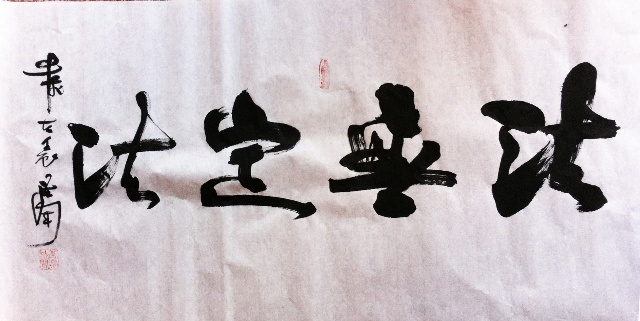
Diamond Sutra – There is no Buddha who attained enlightenment – 金刚经 – 佛没得道,因大道不能得故
There is no Buddha who obtained enlightenment. Why? Because real enlightenment cannot be obtained by anyone, as such implied the dualistic paradigm of “someone” obtaining something called “enlightenment”. While in ordinary perception there appear to be a historical Buddha who obtained a state called enlightenment, in reality, or at least in Buddha self-described reality, this…
-

Diamond Sutra – 2 Stages of Surrender – 金刚经 – 两个阶段的放下
There are 2 levels of surrender: First level pertains to the transcendence of the “self”, second level require one to transcend the notion of there is a fixed “teaching”, to be followed towards the ultimate reality. The second level of transcendence, requires a solid work in the first level before it can mean anything. Otherwise,…
-

Diamond Sutra – Solid foundation leads to real faith – 金刚经 – 一念生净信
If you heard of teachings of this Sutra and there is a sudden realization and resonance in you which brings you faith in the truth described. Congratulations! Your good effort has led to right karma and wisdom which leads you to come in touch with this impenetrable wisdom. Learn thoroughly what this Sutra has to…
-

Diamond Sutra – Buddha beyond form and no-form – 金刚经 – 凡所有相,皆是虚妄。若见诸相非相,则见如来。
Last week, we learnt that Buddha awareness is beyond all form and appearance. How then, can one perceive the Buddha, or its awareness? The Buddha described: the perception of all form (including no-form) is unreal, when we see through all form (including no-form) as transitory and unreal, then we see the real Buddha. This is…
-
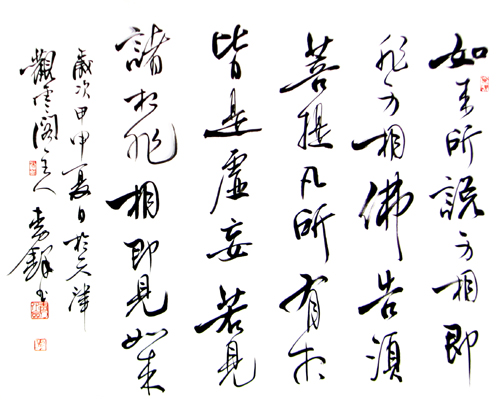
Diamond Sutra – Buddha beyond form and appearance – 金刚经 – 不可以身相得见如来
Can the Buddha be seen? Can enlightened beings been recognized by certain appearance or form? Although there are certain descriptions of how Buddha or Bodhisattva may look, ultimately the reality and awareness of the Buddha, like the nature of the Tao depicted in Daodejing, are beyond form and descriptions. Therefore, real Buddha is beyond form…
-
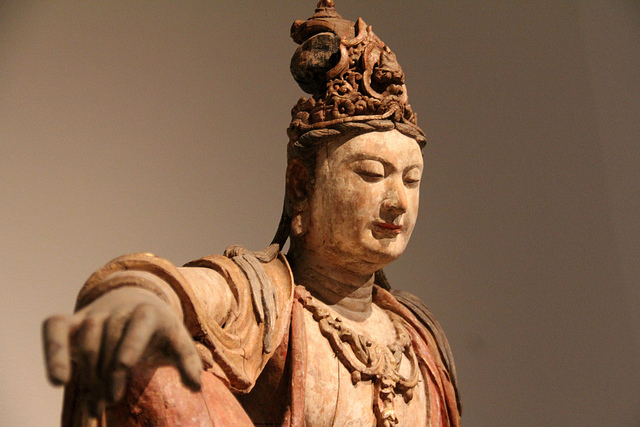
Diamond Sutra – how does Bodhisattva do charity? – 金刚经 – 菩萨如何布施?
Last week we learn that Bodhisattva does not cling to the notion of self, others, beings, and immortality. This week we learn that Bodhisattva not only transcends the above 4, but also continue to serve through charity. In Buddhism continuous service and virtue are essential to complete the process of cultivation and enlightenment, even for…
-
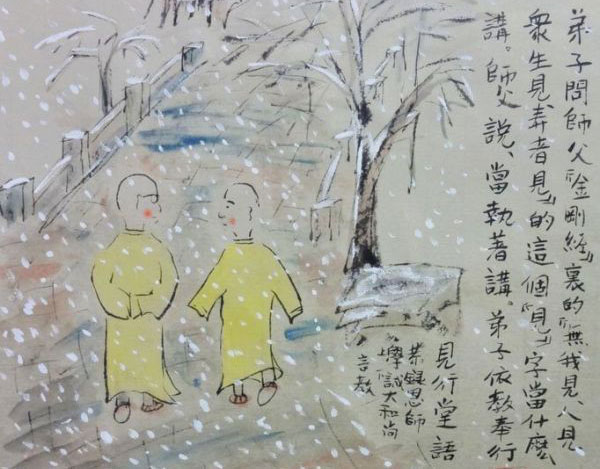
Diamond Sutra – self, others, beings, immortals – 金刚经 – 我相,人相,众生相,寿者相
In this Chapter, Buddha described the essential nature of Bodhisattva (enlightened beings that serves in this world): transcendence of the notion of: self, others, beings, and immortals. self: a separate sense of individual self others: what appears outside of one’s self beings: the collective living beings immortals: any part of life, form or no-form, that…
-
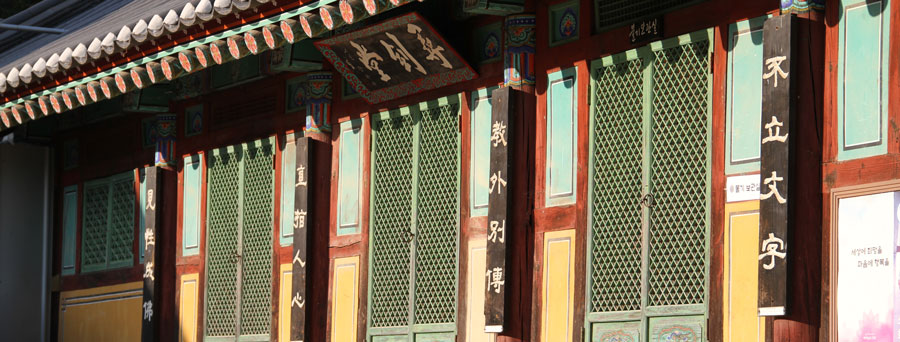
Diamond Sutra – The direct transmission of Mind – 金刚经 – 如是住,如是降伏其心
In the Zen/Chan Buddhist tradition, there is an emphasis on cultivating and transmitting of Mind beyond forms. In the actual happening of such incidences, the knowledge/experience/realization of the teacher is transmitted directly to the student without the aid of words. Such was the attempt of the Buddha when asked by his prominent disciple Subhuti in…
-
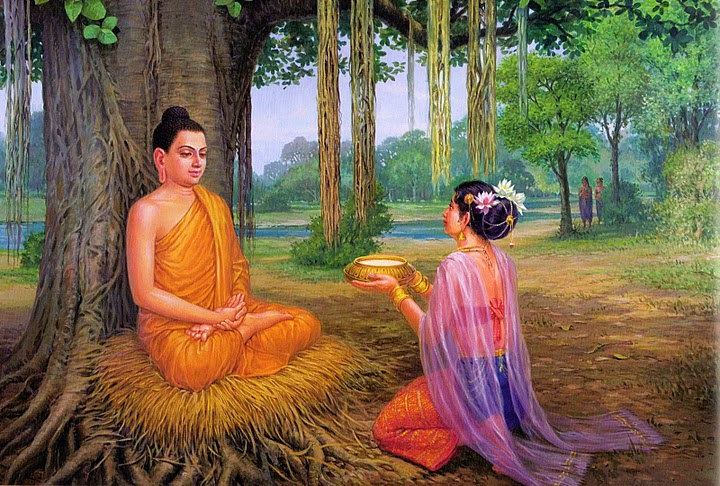
Diamond Sutra – The Buddha eats – 金刚经 – 佛陀吃饭
How do you approach food? Do you love it, or do you hate it? Some people like food so much that they develop strong attachment in eating, while others dislike food so much that they develop an aversion to eating. The Buddha himself suggested the middle way: After going through both extremes, as a prince…
-
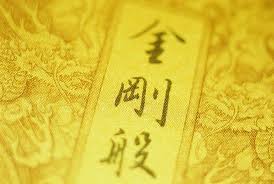
Diamond Sutra – Meaning of Title – 金刚经 – 经名的意义
Diamond is the most precious material on earth. Besides of its scarcity, diamond is also the hardest material on earth. Therefore it is adopted as the name of this Buddhist text. The full name of this text is: “金刚般若波罗密经”. “金刚” means hard/impenetrable; “般若” means wisdom; “波罗密” means conducts leading to liberation; “经” means sutra/text. Together…
-
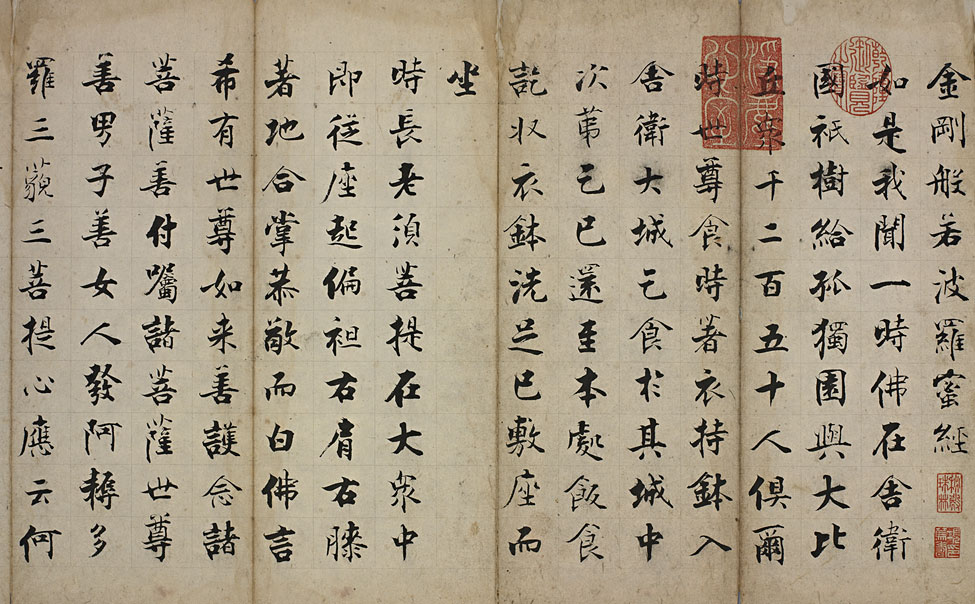
Buddhist Diamond Sutra – starting next week – 佛家金刚经 – 下周开始
We finished our discussion on Confucius Analects last week. So far we have gone through the core teachings from Laozi’s Daodejing, and Confucius Analect. Starting next week, we will start our discussion on one of the core text in Buddhism – Diamond Sutra. Here is an overview of the text: If reality is beyond the…
-
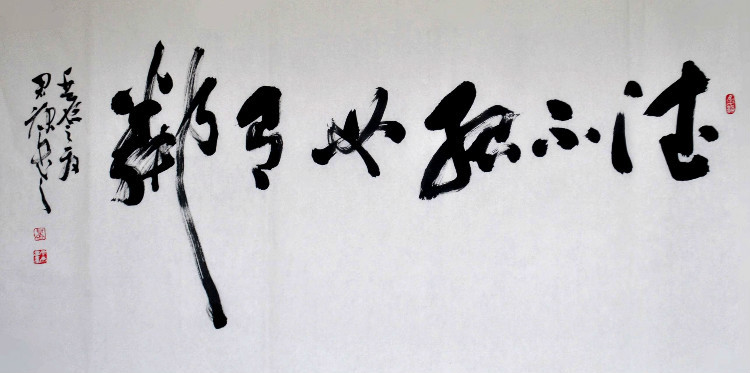
Confucius Analects – Virtue attracts alike – 孔子论语 – 德不孤,必有邻
There is a Chinese saying: giving is more blessed than receiving (施比受更有福). Is it true? Confucius reported so. 4.6 Virtue attracts alike 子曰、德不孤、必有鄰。 The Master said, ‘Virtue is not left to stand alone. He who practises it will have neighbors.’ * * * I would like to share a personal story of charity here. One…
-

Confucius Analects – Surviving the Changing World – 孔子论语 – 隐士的文化
We live in a turbulent world. External events come and go, internal reactions rise and fall. While we could have a fairly stable way to, or expectation on how to live our lives, often time the reality falls short of our expectations. How did Confucius survived this changing world? * * * 8.4 Selecting place…
-
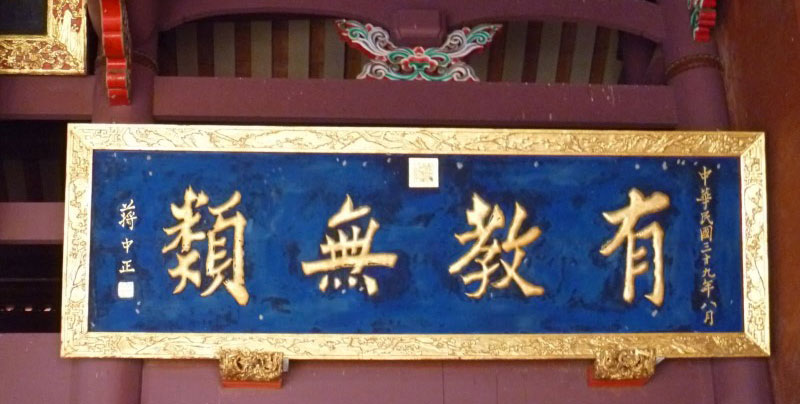
Confucius Analects – Confucius teaches all – 孔子论语 – 有教无类
15.14 Teach all 子曰、有教、無類。 The Master said, ‘In teaching there should be no distinction of classes.’ * * * Confucius teaches all, Laozi transcends all, Buddha liberates all, Jesus loves all. Can you not see where they all coming from and converging back to? 15.14 有教、無類 子曰、有教、無類。 * * * 孔子教导所有,老子超越所有,佛释放所有耶稣爱所有,难道你看不出,他们都来自于和最终融合于哪?
-
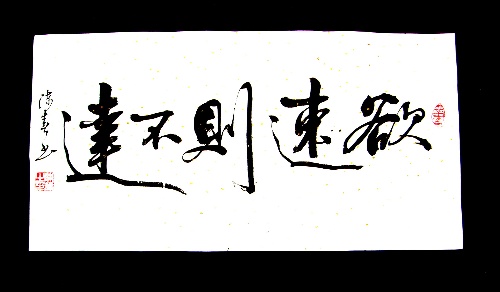
Confucius Analects – Rush and you won’t arrive – 孔子论语 – 欲速则不达,见小利则大事不成
13.2 Do things thoroughly, avoid the temptation of seeking quick and minute advantages 子夏為莒父宰、問政。子曰、無欲速、無見小利。欲速則不達、 見小利則大事不成。 Zixia, being governor of Chu-fu, asked about government. The Master said, ‘Do not be desirous to have things done quickly; do not look at small advantages. Desire to have things done quickly prevents their being done thoroughly. Looking at small…
-

Confucius Analects – Leadership by example – 孔子论语 – 以身作则的领导
13.1 Quality of leaders affect quality of leadership 子曰、其身正、不令而行、其身不正、雖令不從。 The Master said, ‘When a prince’s personal conduct is correct, his government is effective without the issuing of orders. If his personal conduct is not correct, he may issue orders, but they will not be followed.’ * * * There is a Chinese saying “When the…
-
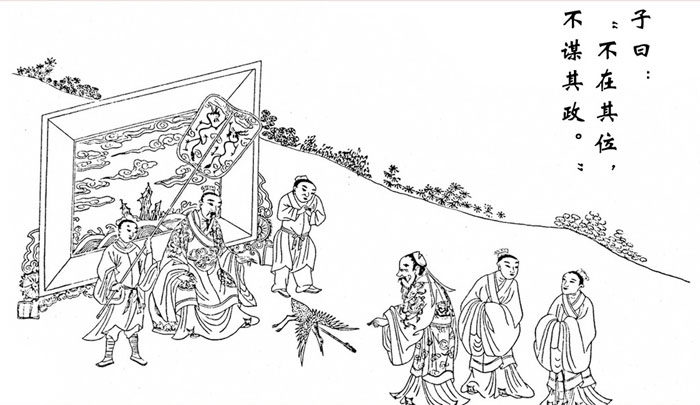
Confucius Analects – Fulfill your roles – 孔子论语 – 做好本份
12.5 How to govern 2 齊景公問政於孔子。 孔子對曰、君君、臣臣、 父父、子子。 The Duke Jing [Ching], of Qi {Chi], asked Confucius about government. Confucius replied, ‘There is government, when the prince is prince, and the minister is minister; when the father is father, and the son is son.’ 8.5 Mind your own business 子曰、不在其位、不謀其政。 The Master said, ‘He who…
-

Confucius Analects – Side tracks – 孔子论语 – 小道
19.1 Superior man avoids side tracks 子夏曰、雖小道、必有 可觀者焉、致遠恐泥、是以君子不為也。 Zixia said, ‘Even in inferior studies and employments there is something worth being looked at; but if it be attempted to carrythem out to what is remote, there is a danger of running into mud. Therefore, the superior man does not practise them.’ * * * What…
-
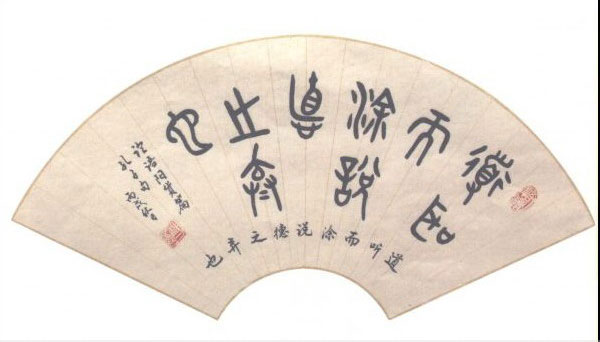
Confucius Analects – Hearsay Information – 孔子论语 – 道听涂说
17.4 Exercise caution against hearsay information 子曰、道聽而塗說、德之棄也。 The Master said, ‘To tell, as we go along, what we have heard on the way, is to cast away our virtue.’ * * * When we hear about something that we do not directly experience, and spread the information without verifying the validity of it, we are…
-
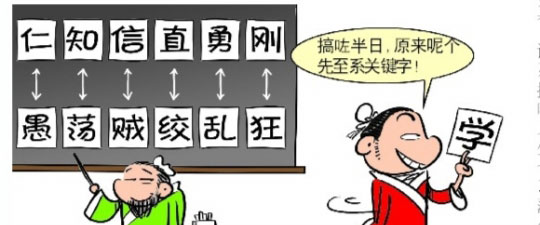
Confucius Analects – balance learning of 6 virtues – 孔子论语 – 平衡的学习
17.3 Importance in learning the 6 virtues (benevolence, wisdom, sincerity, straightforwardness, courage, firmness) 好仁不好學、其蔽也愚、好智不好學、其蔽也蕩、好信不好學、其蔽也賊、好直不好學、其蔽也絞、好勇不好學、其蔽也亂、好 剛不好學、其蔽也狂。 ‘There is the love of being benevolent without the love of learning;– the beclouding here leads to a foolish simplicity. There is the love of knowing without the love of learning;– the beclouding here leads to dissipation of mind. There…
